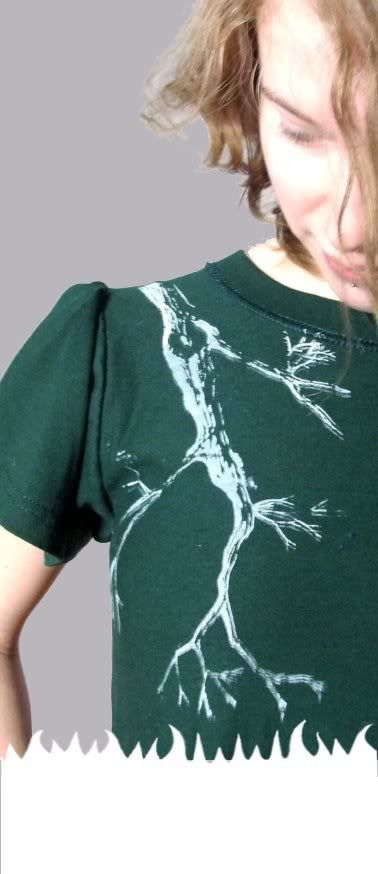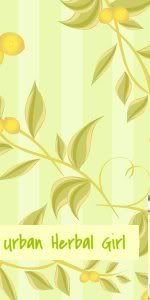 Interview and Photographs by Lydia Krupinski
Interview and Photographs by Lydia Krupinski
I am on a mission. On a quest to find natural and locally made products for the day to day requirements of life. I’ve learned how to make my own deodorant, grown veggies, and have cleaned with vinegar. But there’s one task too daunting for DIY: soap making. There’s a fine art and science to the creation of this daily necessity that I dare not discover on my own.
That’s why I am delighted to bring you an interview with a local soap master who’s creations have stolen the hearts of many Chicagoans, including my husband. David Melis, of Edgewater Soaps, has been making delicious batches of suds since 2002. From lavender oatmilk and rosemary lemon soaps, to avocado facial bars and coconut neem oil dog shampoo, David’s creations span a wide range of scents and needs. Read on to learn about his dedication to natural ingredients and passion for his work.
Q. Tell us a little about yourself and where you live.
A. I’ve lived in or near the Chicago area all my life. I was born in Barrington, Illinois and raised in Racine, Wisconsin, just north of the state line. When I moved to Chicago in 1985, I lived in Rogers Park, just north of Edgewater. Then I moved to Avondale. Then in 1993 I moved to my current home in Edgewater. I love it here. Beautiful tree-lined streets, vintage buildings, tremendous diversity, and easy access to all the amenities of urban life, from public transportation to shopping.
Q. What sets Edgewater Soaps apart from conventional soaps?
A. The short answer is that they promote smoother, softer, healthier, and better-looking skin.
Suffice it to say that commercial soap manufacturers are more concerned about what’s good for their bottom line than they are about what’s good for your skin or good for the environment. And when it comes to commercially made liquid soap, just read the label. 100 percent synthetic detergents, surfactants, and chemical additives. Nothing even remotely natural. So if you value natural, if you value environmentally friendly, if you want to know what you’re putting onto and into yourself without having to spend all day looking up each unpronounceable ingredient to find out what it really is, let that stuff stay on the shelf where it belongs.
Q. What does ecological sustainability mean to you?
A. To me, ecological sustainability means two things. One is that the product or substance in question is easily renewable. By easily renewable, I mean the difference between wood and bamboo. It takes decades for a tree to become large enough for harvest; it takes bamboo five or six years. Two is that the product’s growth, production, or manufacture consumes the least amount of resources. Raising livestock for the tallow one can use to make soap, for example, requires considerably more resources than raising soybeans for the same amount of soy oil. It’s about reducing the energy and resource consumption, and therefore the carbon footprint, that’s necessary to make your product.

 Q. How do your business practices reflect your dedication to sustainability?
Q. How do your business practices reflect your dedication to sustainability?
A. We recycle and reuse everything we can. Plastic bottles, cardboard boxes, paper stuffing, packing peanuts. We store our bulk liquid soaps in reuseable containers that have been thoroughly cleaned and sanitized. We offer refill bottles for our liquid soaps so customers can reuse the individual pump bottles they originally got from us, and both are recyclable plastic. One area we’d like to improve further is the packaging for our bar soaps. I’m researching a number of possibilities for that, and my goal is to have a viable alternative by the end of the year.
We also take pains to educate customers and prospective customers on the value of soaps made with natural and sustainable ingredients, and it’s an interesting challenge. Some of our customers are already very knowledgeable and savvy about this. My hope, though, is that liking my soaps and knowing that they’re made with natural ingredients will cause them to become a little more aware of natural alternatives. And maybe that will lead them to place natural ingredients or products a little higher on the priority list for other things they buy.
Q. What first inspired you to make soap?
A. My venture into soap making started about eight years ago with a case of eczema – extremely dry, itchy, irritated skin. The dermatologist I went to prescribed some creams and some skin care routines, but she had only one recommendation for an over-the-counter soap to use. That seemed odd to me, but not surprising. Commercially made soap is engineered to produce just the right texture, just the right latheriness, just the right shelf life, and so on, and it made sense that some of the chemical compounds that are used might be irritating to skin that’s already inflamed and sensitive.
Not long after that, I read an article about making soaps as gifts. It sounded like a nice idea. And simple enough. So I got on the computer and started searching for stores that might carry the castille soap I needed for the recipes. But what I soon began to come across were websites that were actually about making soap. From scratch! Real, actual soap. Wow!
I didn’t know it then, but I was already hooked. Over the next few months I did a lot of research, bought a book on soapmaking, and learned that you can formulate handcrafted soaps to be especially mild, or especially moisturizing, or especially beneficial for certain skin types or skin conditions.
Armed with all this knowledge, I decided to take the plunge. I found stores from which I could get a few basic soap making oils, I picked up the equipment I needed, and I made my first batch of real soap. It was a total failure! But even though it failed, it had the unmistakable, tantalizing smell of real soap. I had actually made soap. Worthless soap, but soap nonetheless. I couldn’t wait to try it again.
Since then, I’ve made hundreds of batches of natural bar and liquid soaps, and my goal has always been to use natural botanical or botanically-derived ingredients to the greatest extent possible. No animal products or by-products. No chemical detergents or preservatives. No FD&C colorants. Just great soap that’s made from renewable, sustainable ingredients.


 Q. What do you love most about creating soaps?
Q. What do you love most about creating soaps?
A. Soap making is endlessly fascinating because it’s both art and craft, with just enough science thrown in to make it a challenge. There are so many things you can do with soapmaking, so many interesting ingredients you can use. I’ve made soap with beer in place of the water. I made another one with wine. You can do herbal infusions. I use chamomile-infused olive oil in my Soothing Astringent bar, for example.
I love being able to give people that innocent pleasure and feeling of specialness. And that’s really how I think about everything I make. My products make people feel good. Feel good physically because their skin feels clean and fresh, because it’s beneficial for their skin care needs, and because their skin feels and looks better. Feel good emotionally because it’s something nice they can do for themselves, because it gives them the opportunity to support a local artisan, and because they enjoy the aromatherapy benefits, which are calming in some cases or energizing in others. And feel good intellectually because they’re made with natural, renewable ingredients, and don’t contain or release into the environment any questionable chemical ingredients.
Q. Where’s your favorite place to unwind after a long day of soap making?
A. My home because that’s where I make my soaps and that’s where my babies are. Every batch of soap is one of my babies. Some are fussy, some aren’t, but I love them all.
 Q. Where do you find inspiration in your day to day life?
Q. Where do you find inspiration in your day to day life?
A. I find my day-to-day inspiration in the people around me. First and foremost I find it from those whom I love and who love me. Second I find it from people I know whom I like and respect — people who are honorable, ethical, and principled. And perhaps most importantly, I find it from people I don’t know but see around me in the world, living their lives in the constant attempt to do so as peacefully, humanely, responsibly, and compassionately as they can. They are the bedrock of our society. I get so much energy from that because I believe people are intrinsically good and are often thirsting for positive ways to direct their energies even if they’re not doing so consciously. I’ve always said you can appeal to the best in people or you can appeal to the worst in people. Both can be effective in getting them to act in a certain way or believe a certain thing. But appealing to the best in people is so much stronger. And it’s self-reinforcing because it feels good.
I find soapmaking inspiration from my customers. They give me great ideas, and everything I make is either developed in response to what I hear from them or changed based on their comments. Customer input is totally responsible for the dog shampoo liquid and bar soaps I make, for example. I’d never have thought of that myself. I also have customers with particular skin conditions who depend on me for soap that helps to manage their skin problems. My Soothing Astringent bar soap is designed for oilier skin types and the acne problems that often go along with it. It’s a low-volume seller, but that doesn’t matter. I’ll always have it for those who need it.
Q. Are you part of any area groups, organizations, or activist communities?
A. I’m a member of the Handcrafted Soap Makers Guild, the Edgewater Chamber of Commerce, and I am especially pleased to say that I was recently accepted to be a member of the Chicago Craft Mafia, which is the group of dedicated hardworking volunteers and craftspeople who organize the DIY Trunk Show. Mark your calendar – this year’s show is Saturday, November 21, 9:00 a.m. to 5:30 p.m. at the Pulaski Park Fieldhouse in Wicker Park.
Q. What advice would you offer for others looking to live a greener lifestyle?
A. Buy natural, buy local. And read the label. Know what you’re buying. Reuse and recycle.
Q. If you could be any vegetable, what would you be and why?
A. I would be a leek or a scallion or a shallot because I love using them when I cook. And if I could be an herb I’d be parsley or cilantro or chives or rosemary or dill. Wonderful ingredients no matter what you’re cooking.
To learn more about David and Edgewater Soaps visit his website and blog.









Leave a comment
Comments feed for this article